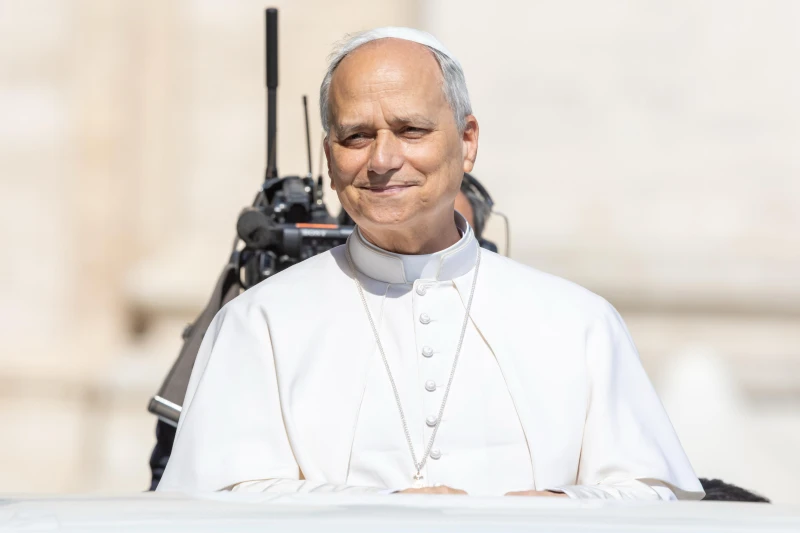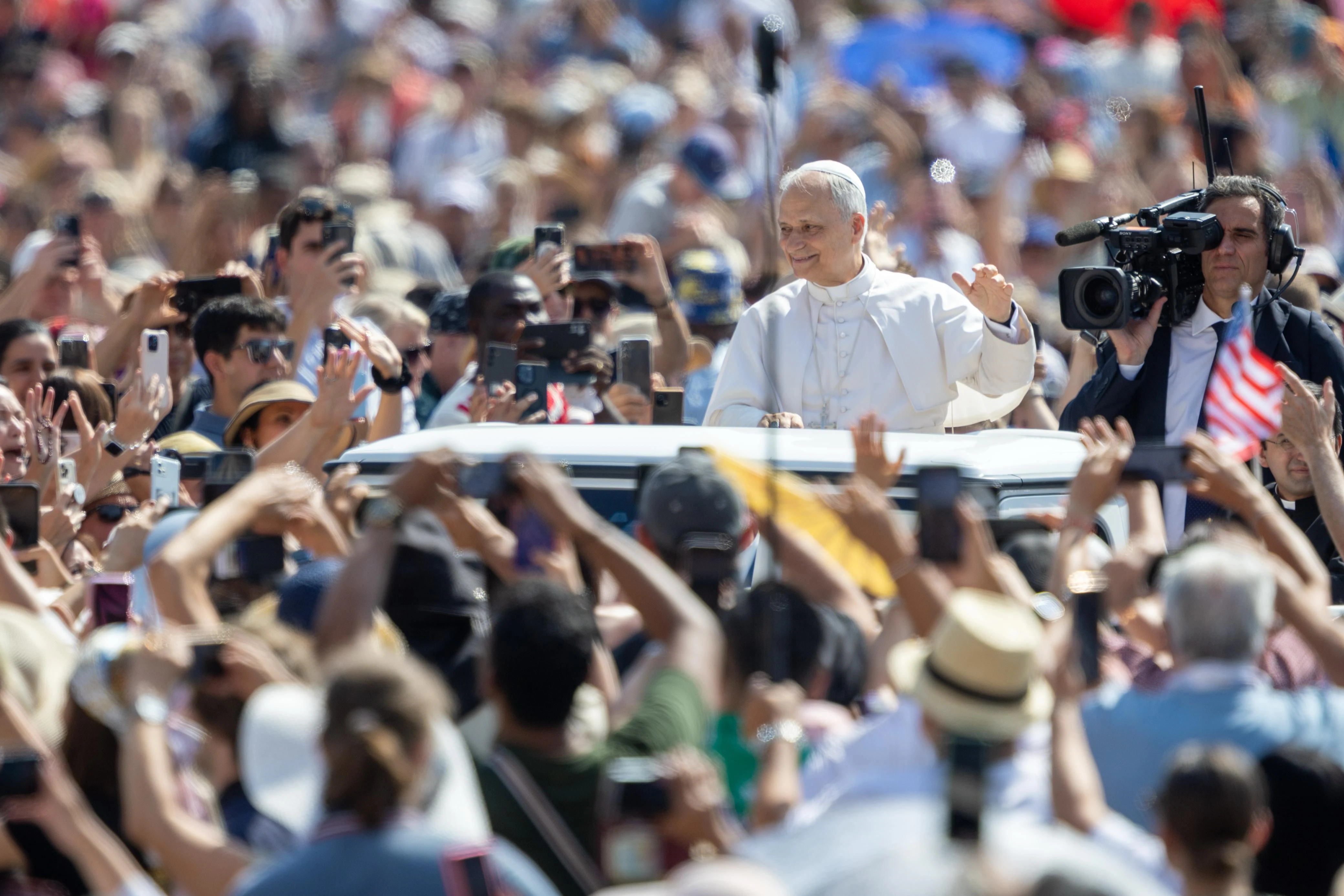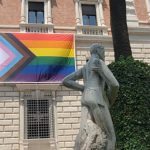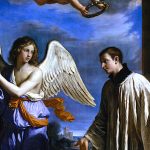 Pope Leo XIV spoke about how Christ can heal our past during the Wednesday general audience in St. Peter’s Square on June 18, 2025. / Credit Daniel Ibanez/CNA
Pope Leo XIV spoke about how Christ can heal our past during the Wednesday general audience in St. Peter’s Square on June 18, 2025. / Credit Daniel Ibanez/CNA
Vatican City, Jun 18, 2025 / 06:03 am (CNA).
After a turn in the popemobile to greet thousands of faithful gathered in St. Peter’s Square for the general audience on Wednesday, Pope Leo XIV continued his catechesis on “Jesus Christ, Our Hope.”
The pope reminded listeners that Jesus is capable of healing and unblocking the past, which at times paralyzes us — inviting us to move forward and decide what to do with our own history.
The Church: A house of mercy
The Holy Father invited the faithful to reflect on moments in which “we feel ‘stuck’ and trapped in a dead end,” where it seems “pointless to keep hoping — we resign ourselves and no longer have the strength to fight.”
Referring to the Gospel passage from John 5:1–9, which recounts the healing of a paralytic, the pope said that it is Jesus who “reaches people in their pain” — the sick and those who had been cast out of the Temple for being considered unclean.
These people, the Holy Father recalled, hoped to get well in a pool whose waters were believed to have healing powers. According to the custom of the time, the first person to plunge into the pool when the water stirred would be healed.
“That pool was called Betzatà, which means ‘house of mercy.’ It could be seen as an image of the Church, where the sick and the poor gather, and to which the Lord comes to heal and bring hope,” he added.

The paralysis of disillusionment
Jesus then approaches a man who had been paralyzed for 38 years and had never managed to enter the pool. The Pope pointed out that “what often paralyzes us is precisely disillusionment. We feel discouraged and risk falling into neglect.” When Jesus speaks to the paralytic, he asks a “necessary” question: “Do you want to be healed?”
“Sometimes we prefer to remain in the condition of being sick, forcing others to take care of us. It can also become an excuse to avoid deciding what to do with our lives. But Jesus leads this man back to his true and deepest desire,” Leo XIV said.
The paralytic, feeling defeated, replies that he has no one to help him into the pool — an attitude which, according to the pope, “becomes a pretext for avoiding personal responsibility.”
Regarding the man’s fatalistic view of life, the pope said that at times “we think things happen to us because we are unlucky, or because fate is against us. This man is discouraged. He feels defeated by life’s struggles.”
With Jesus, we discover that life is in our hands
Nevertheless, Jesus “helps him discover that his life is also in his own hands. He invites him to rise up from his chronic condition and take up his mat. That mat is not thrown away or abandoned: it represents his past illness — his history,” the pope continued.
The past, he explained, had kept the man stuck, forcing him “to lie there like someone already dead.” But thanks to Jesus, he is able to “carry that mat and take it wherever he wants — he can decide what to do with his history. It’s a matter of walking forward, taking responsibility for choosing which path to take.”
Finally, the pope invited the faithful to ask the Lord “for the gift of understanding where in our life we have become stuck. Let us try to give voice to our desire for healing. And let us pray for all those who feel paralyzed and see no way out,” he said.












